derbaum.com
Thoughts about Economics, Software Development and other random bits from Patrick Öhlinger.
Feature Creep in Lab Software
Customers want features, features, features and a clean, easy to use application. How to square that circle?
Sure, the goal for Labordatenbank is to provide a simple and easy to use application. Laboratories have complex tasks to solve. That's what they do. Nobody want's to add even more complexity.
Alright than, keep it simple!
Having said that, labs do need specific features to get specific tasks done.
While every feature may add value to at least one user, it also adds complexity to the whole laboratory information system.
We approach this dilemma by
- learning: better understanding enables less complex solutions.
- customizing: features are only activated on need to use basis.
- saying no: if 1.) and 2.) fails and a requests adds more complexity than value, say so and stay firm.
posten on Monday, February 15, 2010
Fulfilling Development
As I wrote before Menschen müssen arbeiten und lieben um Erfüllung zu finden.
Would I enjoy spending my life on a beach under the sun? Surely, for a week. But in the end, I need to do great work to find fulfillment. Ideally, work that flows.
I find flow when I'm facing challenges and successes in rapid succession. Really both is needed to stay in the flow of maximum productivity. Tools like Textmate, OS X and git provide fast cycles of code, test and deploy. Which is key to quickly jump from challenge to success and back.
Sure, to run a software company we have to manage marketing, sales, contracts, accounting and so on. But what I enjoy is finding those seemingly obvious solutions in interface and database design that ultimatly provide value to our customer and therefor drive our business.
It's not Twitter or some fancy web company monetizing eyeballs. We charge money for software that customers value. With our customers we develop solutions to collect and manage literally billions of measurements. If we can make their work more effective, than that's fulfilling development!
posten on Thursday, December 31, 2009
Labordatenbank Demos: Allgemeine Einführung
posten on Wednesday, October 28, 2009
What is a gift?
A clarification for Economists
C: A gift. (shakes his collecting tin to drive home the point)
B: Oh, a gift! (his face brightens) A tax dodge!
C: No, no, no, no!
B: No? Well, I'm awfully sorry. I don't understand.
Can you just explain exactly what you want?
C: I want you to give me a pound. And then I'll go
away and give it to the orphans.
B: Yes? (waiting, as above, absolutely baffled)
C: Well, that's it.
B: (shaking his head in utter disbelief)
No, no, I don't follow this at all, I mean,
I don't want to seem stupid, but it looks to me
as if I was a pound down on the whole deal.
C: Well, yes you are!
B: I am? But what is my incentive to give you the pound?
C: Well, the incentive is to make the orphans happy.
B: (genuinely puzzled) Happy?
Are you quite sure you've got this right?
C: Yes, lots of people give me money.
B: What, just like that?
C: Yes!
B: They must be sick! I don't suppose you could give me
a list with their names and addresses, could you?
posten on Sunday, December 21, 2008
An n-Sector Migration Simulation
I finished my book on migration simulation for the Research-Unit Economics.
It's based on a Two-Sector Migration Model inspired by Harris and Todaro and applied Agent Based Simulation aligned to Axtell’s Emergence of Firms to build "An n-Sector Migration Simulation".
Here is the abstract:
"Workers, considering costs of migration, tend to migrate to sectors where they expect higher wages. In revers, firms trying to increase profits, migrate to sectors with lower wages. The result of their combined movement determins wages in each sector. This Agent Based Simulation applies an inductive behavior models with various strategies for wage expectations, and yields patterns of migration in an n-sector scenario."
Here are some results:
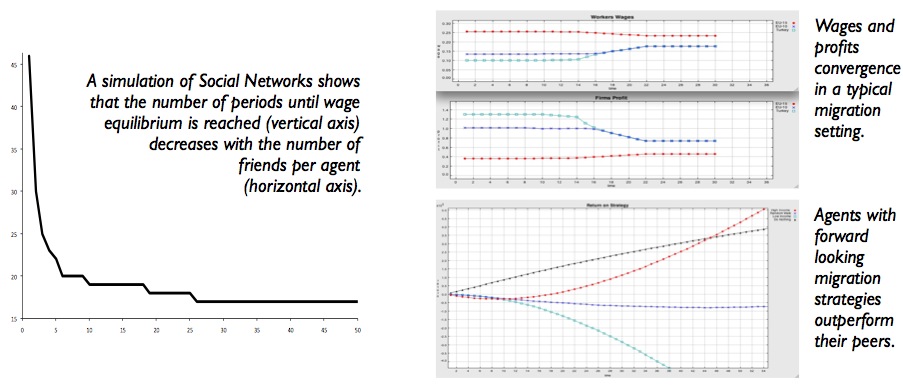
You can order the book on Amazon or read the original paper, including key results of the book, in a free online version.
posten on Thursday, June 19, 2008
Nomads work and love
This weeks issue of The Economist is running a special report on mobile telecoms: Nomads at last.
The report describes how today's ubiquitous mobile technology allows us to work, live and love like nomads (wanderer), without staying long in the same place.
Our documents, spreadsheets, contacts, calenders,... are always available online in the cloud. So unlike previous nomads, we don't have to carry much weight. An iPhone like device may do. Where ever we are we can sit down, do some work, play around with ideas or catch-up with customers, coworkers, or friends and family.
Who wants to be at the office from 9 to 5? If I'm working, does it matter if I sweat in a cubicle or enjoy fresh air in the park? Of course it does! And reading this report just gave me additional encouragement to stay out of that cubicle.
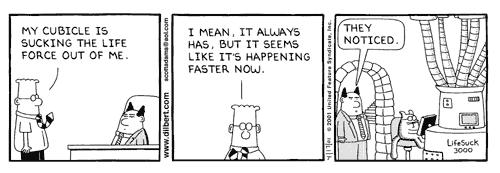
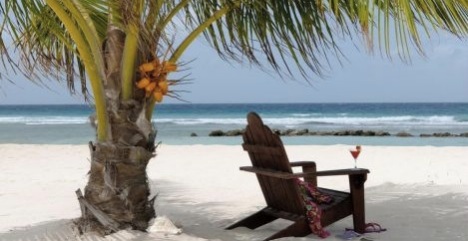
For some an office may be great to get focused, while others prefer a beach. If you find yourself bored or in need for inspiration, get moving. (Right now, I'm in a coffee shop, but that beach looks inviting). In the end, where we are becomes secondary. What counts is that we get things done and spend time with those we love.
Or, as Sigmund Freud put it, Menschen müssen arbeiten und lieben um Erfüllung zu finden (humans must work and love in order to find fulfillment). Mmm, I love it when The Economist runs quotes like that.
posten on Saturday, April 12, 2008
Freegans
I'm all about consumerism. Electronics made in China. A newspaper from Britan. Shirts from Turkey and eggs from Aldi (no idea where they come from).
I try to marginally improve the world by bringing at least a small part of my euros to workers in poor or developing countries (even the most capitalistic company creates jobs and incomes). However there are some who restrict their consumption.
- pescatarian a person who does not eat meat, but fish.
- vegetarian a person who does not eat animals.
- vegan a vegetarian who also does not eat or use animal products.
- fruitarian a person who will eat only what falls (or would fall) naturally from a plant.
- locavorian a person who only eats local food.
- freegan a vegetarian who only eats or uses things from other people’s garbage.
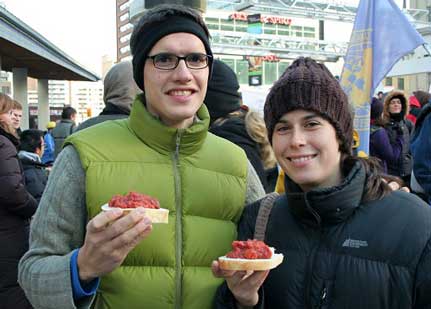
I found those freegans on 3 Extreme Ways To Go Green (via digg).
A related post on derbaum.com is: Eier von Glücklichen Bauern
posten on Tuesday, March 11, 2008
iPhone Surgery
My friend Peter was kind enough to bring me an iPhone from New York. It looked cool, but initially it was locked to AT&T and therefor useless in Europe. But luckily I found an unlocking guide on the web: iPhone in Switzerland.
It looked tough, but doable. So Stefan and I decided to go for it.
- First we had to do some coding. Easy, except the HEX editing which was a bit tiring.
- Second we had to open the device. Hard, since you constantly have to worry about breaking the device.
- Third we had to connect a circuit with a capacitor on the motherboard. Impossible, since those gates are only 0.08mm tick. But somehow we managed it.
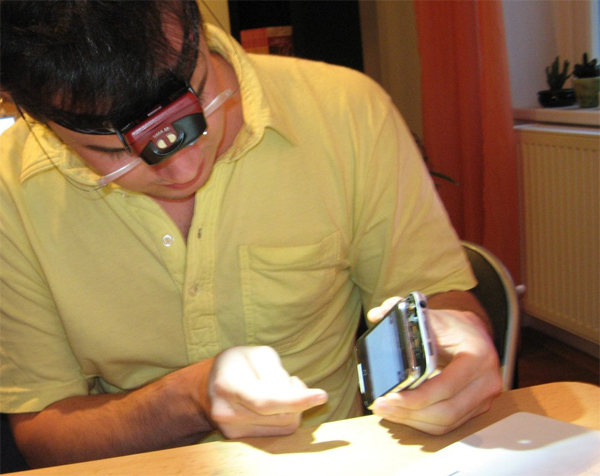
NO SERVICE, PLEASE INSERT AT&T SIM CARD
Agrr...
But wait, we forgot to enter:
AT+CLCK=”PN”,0,”00000000″ AT+CLCK=”PN”,2And surprise, surprise: the iPhone is now unlocked!
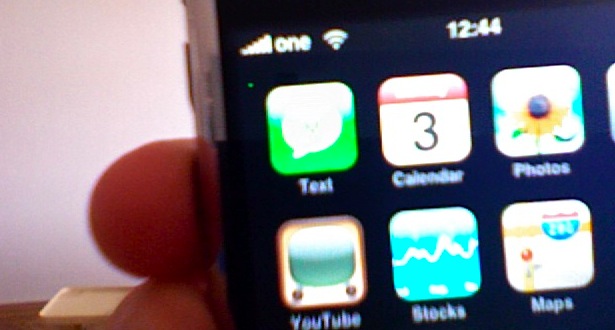
posten on Monday, September 3, 2007
Sommerpause

Walking around Vienna, one is easily reminded of the current season: Summerbreak. The time when small and mid-sized shops hang a little sign in the window saying "Summerpause". They leave early in August and most return in September.
I'm glad to see how successful those shops must be. How else could their owners afford to close and take a month long vacation? I always misunderstood their past complains about international competition. An ironic joke it must have been.
It must be a fest, for the shop owners on vacation, to lay in the sun and laugh about their competitors working thru the summer heath. "Those poor bastards" they might think. "Who knows, if allowed, they would probably work on Sunday as well."
posten on Saturday, August 18, 2007
Please, No Asiaphobia
Twice a year (next on May 22nd) the economic leadership of China and America meets for a Strategic Economic Dialogue to disuse trade relations.

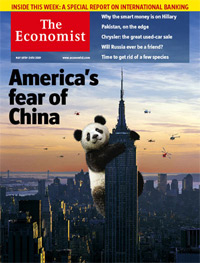
Unfortunately discussions are overshadowed by increasing hostility against China. The American congress accuses China among other things of stealing their economic leadership, natural resources and jobs. (This weeks issue of The Economist runs a survey about America's fear of China.)
First, China's population is more than four times bigger than America's population. Obviously China should command a bigger economy at some point (as it did in the past).
Second, natural resources are bought and sold internationally. As the world economy grows and more people live a decent life, so does demand for resources and their price. America could easily improve a thing or two in its efficiency of using resources. A higher price (and regard for the environment) provides the right incentives. The same counts for China.
Lastly: jobs. Is China stealing American jobs? Some members of congress seem to believe that world trade (or trade in general) is a zero-sum game. One job more in China's export industry means one job less in America.
That's not the case. As America imports from China, China imports from America. Jobs lost in one sector, will be gained in another. If America imports more than it exports (as it currently does), it pays with dollars. A promise of value which China can use for imports in the future. If China does not redeems those dollars, America basically imports for free. Hardly something to complain about.
In today's China Daily I read a smart statement by Ms. Wu: "The United States, as a global leader in science and technology, should give full play to its comparative advantage, enhance mutual trust and relax export controls to boost the competitiveness of American companies, revers the trend of dwindling market share of American hi-tech products in China, and reduce its trade deficit with China."
With comparative advantage, David Ricardo's theory on trade, Ms. Wu reminds us that even if America is far ahead in science and technology, it could still gain from trade in those fields.
As a previous investment banker, Mr. Paulson knows just as well about the gains from trade. That's why he should resist pressure from congress and further open the US economy. Ms. Wu would certainly welcome him.
posten on Friday, May 18, 2007
4:30:40
Today, tortured and with tears in my eyes, I finished my first marathon.
I'm pleased with my time (4:30:40). If I keep running, maybe I can beat 4 hours next year.

OK, I will fall asleep now and pray that I can still walk tomorrow.
posten on Sunday, April 29, 2007
Costs of Communication in Austria and Germany
My friend Konrad and I occasionally compare our living costs in German and Austria. Communication costs are particular interesting. Since years, we find broadband internet to be cheaper in German, while mobile telephony is cheaper in Austria. Why that?
 Let's try some back-of-the-envelope calculations:
Let's try some back-of-the-envelope calculations:
- Population density and broadband internet: Wiring a highly populated area is cheaper (per head) than wiring a low populated area. Population density turns out to be more than double in Germany than in Austria. 231 people/km² in Germany vs. 99 people/km² in Austria.
- Competition and mobile telephony: Higher competition means lower prices. Austria has a 12 times higher ratio of mobile phone companies per people. 4/82m in Germany vs. 5/8m in Austria.
posten on Sunday, April 29, 2007
Kafkaesque Bureaucracy*
International newspapers only write about Austria in their culture or travel section. If it does come up in the politics or business section, it's usually rather embarrassing.
Last weeks edition of The Economist had a fun (but sad, since true) sentence, stating that "the elan of Austrian business was stifled for many years by a bloated public sector, Kafkaesque bureaucracy and politicized boardrooms".
- Office Hours (Parteinverkehr): Mo, We, Thu 8-12am
- Tenant's rights (Mieterschutz): Enjoyed by renters, but dare you if you think about renting out yourself.
- Government Expenditure: 49% of GDP (that's 66billion Euro).
- Civil Servant (Beamte): Learn to deal with them (they make up half the employed population). If you need something, prepare compliments and little presents like a cake or wine.
- Documents (Akten) must be long and hard to read.
- Labor law (Arbeitnehmerschutz): Better not to hire.
- Community housing (Gemeindewohnung): Apartments which are partly paid for by the government. Mostly for civil servants or their closest relatives.
- ??? (Kommerzialrat): Someone who has been civil servant for a long time.
- Post office: To get the full Kafkaesque experience, try sending a letter to Asia on a Friday around 5pm.
*The impossible fight against government regulation and monopolies, as described in Franz Kafka's "Das Schloß" and "Der Prozeß".
posten on Friday, April 6, 2007
Freude, Freude, Freude
 Freude, schöner Götterfunken
Freude, schöner Götterfunken
Tochter aus Elysium,
Wir betreten feuertrunken,
Himmlische, dein Heiligtum!
Deine Zauber binden wieder
Was die Mode streng geteilt;
Alle Menschen werden Brüder,
Wo dein sanfter Flügel weilt.
Beethoven's Ode „An die Freude“
This Sunday we celebrate the 50th anniversary of the European Union.
Many people don't think highly about the Union these days. They worry about future expansion. Some even reject our new member states Romania and Bulgaria. They worry that integrating poor countries might push down wages. But the solution is not to shut them out, but to help them grow rich. The best way to do so, is to forget about borders and start working together.
Therefore we toast to the European Union and welcome even more new members.
Addition from March 26th: Today I read a fictional article about the 100th anniversary of the Union. So good, I had to laugh and cry and offer you a copy without permission...
From The Economist:
The EU is celebrating its 100th birthday with quiet satisfaction. Predictions when it turned 50 that it was doomed to irrelevance in a world dominated by America, China and India proved wide of the mark. A turning-point was the bursting of America's housing bubble and the collapse of the dollar early in the presidency of Barack Obama in 2010. But even more crucial were Germany's and France's efforts later in that decade, under Angela Merkel and Nicolas Sarkozy respectively, to push through economic reforms.
These reforms produced a sharp fall in unemployment just as Europe began to enjoy a productivity spurt from the spread of information technology. The eventual result was a growing labour shortage, which was not resolved until the arrival of Turkey and Ukraine as full members in 2025. The accession soon afterwards of the first north African country, Morocco, helped to prolong Europe's boom.
Of course it was not all plain sailing. The great Italian crisis of 2015, when the government of Gianfranco Fini quit the single currency just as David Miliband's Britain was about to join, cast a long shadow. Yet although Italian bondholders took a hit from the subsequent default and Italy's economy was soon overtaken by Spain's, financial markets proved forgiving, and the government of Walter Veltroni managed to rejoin the euro fairly quickly. Since then no country has been tempted to repeat Italy's painful experiment.
The other cause for quiet satisfaction has been the EU's foreign policy. In the dangerous second decade of the century, when Vladimir Putin returned for a third term as Russian president and stood poised to invade Ukraine, it was the EU that pushed the Obama administration to threaten massive nuclear retaliation. The Ukraine crisis became a triumph for the EU foreign minister, Carl Bildt, prompting the decision to go for a further big round of enlargement. It was ironic that, less than a decade later, Russia itself lodged its first formal application for membership.
At the same time politicians in Brussels and Washington, grappling with the blocked Middle East peace process, had a eureka moment. EU membership had worked, eventually, in Cyprus, which was reunified in 2024; why not try it again? So it was that Israel and Palestine became the EU's 49th and 50th members.
The big challenge now is what to do about Russia. Its application has been pending for 15 years. Some say that it is too big, too poor and not European enough to join. But now that the tsar has been symbolically restored, Russia has an impeccably democratic government. A previous tsar saved Europe from Napoleon nearly 250 years ago. It would be apt to mark the anniversary by welcoming Russia back into the European fold.
posten on Friday, March 23, 2007
Why Economics?
 When I was 16, my friend Cornelius and I, bought three billiard tables. We convinced a coffee shop owner to let us put the tables in the back of his café. We told him how much money we expected to earn and promised him half.
We were sure the shop owner would have a look, since it was his money as well. Everyday after school we went to the cafe and thought about ways to improve our business. We cleaned up, bought better cues, a coin changer and even installed new lightning (the green ones in the picture). We where highly motivated because we saw the reward in the coin collector every day.
When I was 16, my friend Cornelius and I, bought three billiard tables. We convinced a coffee shop owner to let us put the tables in the back of his café. We told him how much money we expected to earn and promised him half.
We were sure the shop owner would have a look, since it was his money as well. Everyday after school we went to the cafe and thought about ways to improve our business. We cleaned up, bought better cues, a coin changer and even installed new lightning (the green ones in the picture). We where highly motivated because we saw the reward in the coin collector every day.
Intuitively we understood the working of the free market. We improved the lot of our players and the coffee owner, simply by pursuing our own self-interest. It was a win-win-win situation.
Unfortunately after only a year we had to stop our business. Our parents insisted that school was more important. (Through this, we learned how regulations can limit the market.)
After high school, I decided to study information systems but never left economics. I took all available economics courses and read every book I could get my hands on. Now, after being close to finishing my master in information systems, I want to proceed with a master in economics.
In my future career I hope to pursue both, my interests in economics and computer science.
posten on Friday, March 2, 2007
Firework for the Pig
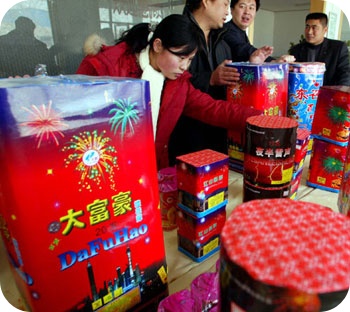 On February 18th started the Year of the Pig in China. I was in Beijing and enjoyed the spectacle but hated the firework. In Austria I don't mind. I enjoy the free ride, when other people spend there money lighting up the sky.
On February 18th started the Year of the Pig in China. I was in Beijing and enjoyed the spectacle but hated the firework. In Austria I don't mind. I enjoy the free ride, when other people spend there money lighting up the sky.
But Beijing firework isn't about illuminating the sky, its about who makes the biggest bang. At moments its a pain to be outside and uncomfortable loud inside.
Only last year was the bane on fireworks lifted in Beijing for the days surrounding new-year celebrations. It seems people needed to make up for the 12 years it was forbidden. But unlike a smart boy, who carefully drives when his father gives him the first opportunity, Beijing people seemed to try to get it banned again as soon as possible (some 270 people were injured and one 25-year-old was killed during this years celebration in Beijing).
Of course a single Beijinger doesn't make the difference. Only the combined overshooting causes risk of banning. A negative externality of fireworks. Putting the Econ101 textbook example for public goods (a firework for everyone to enjoy) on the head.
posten on Tuesday, February 27, 2007
Hustler: an aggressively enterprising person; a go-getter
I remember walking around GangNam, in Seoul, where I passed a fashion store. The store and the exhibited clothes appealed, so I walked in for a closer look. I liked there shirts. They used a surprisingly comfortable material, which just felt good. But there it was, a shocking slogan: Made in Downtown LA, Organic. Gosh, another anti-globalization environmentalist. No, I can't support this company. I left the store feeling a bit sorry for the missed shirt.
Half a year later, today. I'm reading about this guy, Dov Charney, who runs a global fashion company focusing on the needs of the young, well-travelled crowd that he calls the “world-metropolitan culture”. While reading I figured this company called American Apparel, is the one I visited in Seoul.
From The Economist:
DOV CHARNEY courts controversy. The 37-year-old founder and chief executive of American Apparel, the largest T-shirt manufacturer in America, has been called a brilliant businessman, an amateur pornographer, a Jewish hustler and a man with a social mission. He is admired for single-handedly creating one of America's most successful fashion retailers, for devising his company's sexually suggestive approach to advertising and for treating his workers much better than his rivals. He is also envied, loathed and criticised for all of these things.
Read the entire Face Value.
This article and an interview by Charlie Rose showed me that Mr Charney is a likeable person, indeed a capitalist and very much pro-globalisation. The Economist calls him The Hustler. An aggressively enterprising person. A go-getter.
I guess I can return to GangNam and buy that Shirt without a guilty conscience.
PS.: I wanted to show a picture of Mr Charney. But American Apparel has a beautiful Photo Collections where I stumbled over a picture of Ji-Sung, an employee from the Seoul store, which I liked better.
posten on Saturday, January 13, 2007
Marathon Training
I would like to run the Vienna Marathon on April 29th. After reading about marathon training and talking to Lutzi -my trainer- I came up with the following schedule:
| Week | Mo | Tu | We | Th | Fr | Sa | So | ||
|---|---|---|---|---|---|---|---|---|---|
| 8.-14.Jan | 10km | 8km | 8km | 14km |

|
||||
| 15.-21.Jan | 10km | 8km | 8km | 15km |

|
||||
| 22.-28.Jan | 10km | 9km | 8km | 16km |

|
||||
| 29.-4.Feb | 10km | 9km | 9km | 17km | |||||
| 5.-11.Feb | 11km | 9km | 9km | 18km | |||||
| 12.-18.Feb | 11km | 10km | 9km | 19km | |||||
| 19.-25.Feb | 11km | 10km | 10km | 20km | |||||
| 26.-4.Mar | 11km | 10km | 10km | 21km | |||||
| 5.-11.Mar | 12km | 10km | 10km | 22km | |||||
| 12.-18.Mar | 12km | 10km | 10km | 23km |

|
||||
| 19.-25.Mar | 12km | 10km | 10km | 24km | |||||
| 26.-1.Apr | 12km | 10km | 10km | 25km | |||||
| 2.-8.Apr | 12km | 10km | 10km | 15km | |||||
| 9.-15.Apr | 10km | 8km | 8km | 14km |

|
||||
| 16.-22.Apr | 4km | 4km | 4km |

|
|||||
| 23.-29.Apr | 4km | 4km | 4km | 42km |

|
Additionally Lutzi recommends noodles, potatoes, fish, eggs, chocolate and bananas. Which sounds like my current diet anyway.
posten on Thursday, January 11, 2007
Don't retire, give Lectures like Hans Bethe
Mr. Bethe was a leading figure in quantum physics. He won the Nobel Prize in 1967. At the age of 93 he gave a lecture called Quantum Physics - Made Relatively Simple. I'm glad Cornell University brought it online. It's a joy to watch.
Watching his lecture, one can see he still enjoys quantum physics. 93 years and he still likes his job! To me, that's even more impressive than his Nobel Price.
Forget state pension. If your country signs you up automatically, opt-out. Get a job you like, and enjoy it till the your end. You may safe some money for latter. But stay away from state pension. This pension money will become hard to resist when you are 60. Forcing you to quite in the middle of your career. Don't take that risk. Act now. The less money in your pension fund the better.
posten on Tuesday, January 9, 2007
My Goals for 2007
Writing down goals gives focus and motivation. Telling everyone about it, motivates even more, by inducing peer pressure.
Here is my take for 2007:
- Finish Master of Science (MSc).
- Find new customers for software projects.
- Run a marathon in less than 5hours. First chance, April 29th in Vienna.
- Improve derbaum.com so actual people care to read.
- Enjoy doing so!
posten on Monday, January 8, 2007
Eier von Glücklichen Bauern
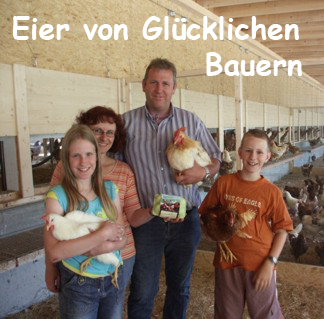 Eggs from happy Farmers.
Eggs from happy Farmers.
I like to cook. I buy my food at Billa, an Austrian grocery, for no other reason than it's location. Across the street. If there was an Aldi, a cheaper grocery from Germany, I would go there.
But some people drive a great distance to find a farmers market where they pay not less but more for local, organic food.
I frequently get into fights with my sister, when we cook together, since she too insists on organic and local food.
But I don't want to pay more and support farmers in Austria over farmers in, say Chile.
"But those are more happy farms", she insists.
Of course those Austrian farm(er)s are more happy. They get vast amounts of subsidies and protection from the European Union as well as the Austrian government. The little competition left, is further reduced by strict import regulation. Additionally, even the Austrian population favors them for almost any price. Someone really did some great marketing (and lobbying) here.
The Economist offers some arguments why
- Organic Food doesn't help the environment (Without pesticides twice as much land is needed for farming).
- Local Food increases pollution (Small trucks from each farm pollute more than efficient international cargo).
- and Fair Trade hurts farmers in Africa (The price for coffee is low because of overproduction, subsidizing some farmers with "Fair Trade" will lead to even more production. Decreasing the price for others even further).
posten on Wednesday, December 27, 2006
Great Lectures
From Princeton's University Channel:
- Beyond Freakonomics: New Musings on the Economics of Everyday Life
Steven Levitt, co-author of "Freakonomics" and professor in economics at the University of Chicago, discusses his latest research - The Sun Also Rises: How a Recovering Japan Could Change Asia
Bill Emmott, former Editor-in-Chief of The Economist - Working Across Cultures in a Global Company
Dominique Thormann, senior vice president, Nissan North America Inc. - Lessons from China in preparation for the 2008 Beijing Olympics
Madame Li Guanzheng, Commissioner, Beijing Municipal Education Commission and President, Beijing Association of Education, and Mary Conneely, Regional Director of Regeneration, London Learning and Skills Council. - Pakistan's Role in Regional Peace and Development
Shaukat Aziz, Prime Minister of Pakistan
- Earth's Most Customer Centric Company: Differentiating with Technology
Jeff Bezos, Founder and CEO of Amazon.com
Robert Frederick, Manager of Amazon Net Services - When to Seed, When to Harvest: The Four Quads of Innovation, Growth
Michael L. Eskew, Chairman & Chief Executive Officer, United Parcel Service - The Akamai Story: From Theory to Practice
F. Thomson Leighton, Co-Founder and Chief Scientist, Akamai - The Power of the Network to Change the Way We Work, Live, Play, and Learn
John Chambers, President and CEO, Cisco Systems
posten on Saturday, December 23, 2006
patSearch
patSearch is a search plug-in for Firefox 2 and Internet Explorer 7. It forwards your regular searches to Google but provides access to other search engines via keywords. Suppose you are interested in Milton Friedman, just type "Milton Friedman" and get the Google results. If you want to go to Mr. Friedman's Wikipedia entry directly, type w Milton Friedman or a Milton Friedman to search for his books on Amazon.
Examples:
|
posten on Thursday, November 30, 2006
Incentives for running
Four weeks ago, Samuel and I started to run. Five times a week. 30minutes each. From the start we knew, motivation is key. We both want to run. Why not motivate each other? If Samuel runs, I pay him 10€. If I run, he pays me. If we both run, no one has to pay. A very simple schema, but surprisingly motivating. Each week we kept running. Attracted by our success, this week, Johannes joined and I hope more will follow.
Last week I bought additional motivation. It's called Nike+iPod and snaps on your iPod and in your running shoe (doesn't have to be a Nike). It measures your time, speed and distance. And it gives sexy voice feedback on the run. After running when you connect your iPod with your PC (doesn't have to be a Mac), you get stats which of course you have to beat next time.

With Nike+iPod I set myself three goals for the next four weeks:
- 20 runs
- with an average speed of less then 5min30sec/km
- and 100km in total
posten on Monday, October 30, 2006
China Know How 2006
Impressions from Peking University and Fudan University.
by Patrick Öhlinger
This summer started for me with an invitation by my good friend Andreas Kraml. He told me about his application to a summer university and knowing about my interested in China and economics, he recommend me to apply as well.
Already close to the application deadline, I contacted Mr. Böhm, my economics professor. Thankfully did he help me right away with a letter of recommendation for the Modern China Studies for Scientists and Economists in Beijing und Shanghai.
With little formalities, the application was quick and much easier than I worried. I even received a scholarship. And with the kind help of Ms. Höfler, I was soon heading for Beijing.
In Beijing with the first lectures ahead, I was exited to find out about the university, the lectures and our group.
In every regard my expectations where soon exceeded.
Peking University and Fudan University both have a beautiful campus. With trees and lakes and motivated students all over. Walking under the trees, one constantly feels like sitting down for a chat or to enjoy a book.

Right from the start we had inspiring lectures. Given from the top professors at the various departments. Usually from 10 till 12 and 2 till 4, with occasional trips to famous sights and foreign companies in the surrounding of Beijing and Shanghai.
On those trips our group got closer together. Soon friendships developed, which I’m sure, will hold much longer than the four weeks in China.
The impressive growth of China
Reading about the growth of China is impressive by itself. But actually being at the scene to experience what is happening is a different thing. China grows fast. So fast, that we in stagnating Europe can hardly understand what’s going on. For most, China still seems far away. To really understand, one has to be part of it. We weren’t. But we got to talk with professors and students who are and they explained as much as they could about the implications of the growth for China, Asia and the rest of the World.
It was as funny as it was shocking when I followed the comparisons the professors were showing. They were not comparing China with another developing country. Not even America. They were comparing China with the rest of the world:
- 50% of cement consumption
- 36% of steel consumption
- 30% of coal consumption
- 20% of the population
- 20% of foreign exchange reserves (1trillion US $)
- 7.3% of all exports
- 6.4% of GDP (just behind USA in PPP terms)
- 6.3% of all import
- 5.4% of cell phone subscribers (400 million)
- ...
China’s economy grows with 10% a year. Since 20 years and with no clear reason why this shouldn’t continue for the next 20 years. And that’s how it should be. Still too many are poor, with growth as their only hope. With 20% of the world population, China should approach 20% of the world GDP. Like it had before the industrial revolution gave western countries a headstart.
America's time as leading (economic) world power is numbered. China will take that role. That’s known. Unknown is when. Economic forecasts predict 2030, as the year when China’s GDP will overtake Americas (in PPP terms).
For those numbers and further reading on Chinas economics I recommend: The China Miracle by Lin, Cai, Li and two recent surveys from The Economist (Sep 16th 2006 and Oct 21th 2006).

The big industries, banking, insurance and infrastructure, are still state owned or strictly regulated. But the free market is working in millions of small and mid-size business all over the country. While hiking the Great Wall of China, there where always people selling bottled water. Just when sweating tourists needed it most.
When I reached the highest point of the wall, I was looking for a trashcan to throw away my empty bottle. At that moment a men collect my empty bottle. He collected hundreds. I had no idea what’s going on. But later I found out there is a market for trash to be sold. Impressive how markets develope seemingly everywhere.

We students in cozy Europe sometimes relax that students in China (and India) are no competition. But just as chinese blue-collar works challenge their competitors in Europe so do white-collar works. China has more graduate students then Europe and America combined. We may (for now) comfort us with believing their education is not as good and misses critical skills like innovative thinking. But while European universities feel sorry about being overtaken by American universities, Asian schools are overtaking European schools as well. Japanese, Korean and Indian universities are already ranked above European and next to American universities. And China is following fast.
Criticizing China’s innovative thinking, one only has to look at the streets to find very innovativ solutions to everyday problems.

China is still a poor country. It has a long and challenging way ahead. But it is on the right track. Millions are lifted out of poverty every year. It’s an exiting moment for China and the world. I’m glad I could see a bit of what’s happening.
posten on Saturday, October 21, 2006
Magnum P.I. Night

I'm soon hosting a Magnum Night.
For those who don't remember. Magnum is a private investigator (P.I.) in Hawaii. His lifestyle represents every man’s dream. He comes and goes as he pleases, works only when he wants to, has the almost unlimited use of a Ferrari 308 GTS as well as many other luxuries, keeps a mini-fridge with a seemingly endless supply of beer, comes into contact with countless beautiful women (who are often his clients or victims in the cases he solves).
While waiting for the Magnum Night, enjoy the title music:
Magnum, P.I. was first aired in 1980.
posten on Sunday, October 8, 2006
Shanghai Business Cards
I'm in a cap in Shanghai, trying to find a Sushi place where I'm supposed to meet my colleges. That's always a challenge. Taxi drivers plainly refuse to read street names written by me in English on a napkin. If I try reading to them, they refuse to listen. I have to call a chinese friend, spell out the street name, and ask the driver to listen to a correct pronunciation over the phone.
Any attempt to sidestep this procedure leads me outside the city from where I have to call my friend anyway.
To make things easier, I carry a collection of business cards with Chinese addresses of various places I may want to go to. But of course the card from the Sushi place is missing...

posten on Thursday, September 21, 2006
Deng Xiaoping's Nest
Getting some time off, from our classes at Beida (that's Peking University), Andreas and I where lucky to have a smart fellow showing us the new Olympia stadium. Which looks like a bird's nest. The 2008 Beijing Olympics mark a new high point since Chinas open-up up in 1979 and it's accession to the World Trade Organisation (WTO) in 2001.

Deng Xiaoping pioneered "Socialism with Chinese characteristics" and Chinese economic reform, also known as the "socialist market economy". He opened up China and reunited it with Hong Kong as "one country with two systems". He laid the foundation for the market economy, which lifts millions out of poverty every year.
A smart fellow indeed.
posten on Wednesday, September 6, 2006
Milton Friedman about Hong Kong
From the classic Milton Friedman television series Free to Choose (1980):

Hong Kong never stops. There's always some business to be done, some opportunity to be seized. Its long been a tourist center and a shoppers paradise and it's now one of the business centers of the East. It's the ordinary people of Hong Kong who benefit from all this effort and enterprise.
This thriving, bustling, dynamic city, has been made possible by the free market indeed the freest market in the world. The free market enables people to go into any industry that they want; to trade with whomever they want; to buy in the cheapest market around the world; to sell in the dearest around the world. But most important of all, if they fail, they bear the cost. If they succeed, they get the benefit and it's that atmosphere of incentive that has induced them to work, to adjust, to save, to produce a miracle. This miracle hasn't been achieved by government action by someone sitting in one of those tall buildings and telling people what to do. It's been achieved by allowing the market to work. Walk down any street in Hong Kong and you will see the impersonal forces of the market in operation.
And so it is today. 26 years later.
Hong Kong today is among the richest countries of the world. Just behind Austria. But unlike Austria, Hong Kong keeps growing. Surpassing those countries who discourage working with overblown regulations and high taxes.After watching the first volume Free to Choose, continue with the remaining nine. Irresistible!
Volume 2: The Tyranny of Control
Volume 3: Anatomy of a Crisis
Volume 4: From Cradle to Grave
Volume 5: Created Equal
Volume 6: What’s Wrong With Our Schools?
Volume 7: Who Protects the Consumer?
Volume 8: Who Protects the Worker?
Volume 9: How to Cure Inflation
Volume 10: How to Stay Free
Want more? Enjoy Milton Friedman on Limited Government
Milton Friedman died Thursday Nov 16th at age 94.
posten on Tuesday, August 15, 2006
Chungking Express
Arriving in Hong Kong, a busy Indian approached me to have a look at his "hotel". What he showed was a shabby, tight room with no window in the 7 floor of Chungking Mansions. But I remembered this house. It's where Wong Kar Wai shot Chungking Express. This movie has two stories. The first, rushing thru Chungking Mansions and the second, a bit slower let's Valerie Chow playing a busy Air Hostess break up with Tony Leung the Cop 663. Who will, after suffering, meet the sweet Faye Wong.

This movie represents everyday Hong Kong life. Just like Chungking Mansions. Flashy, shabby, crowded, lovely!
posten on Sunday, August 13, 2006
Dear Seoul,
Finally we met again after three separated years. You have changed. Grown bigger. More appealing. But more expensive too, I’m afraid. Getting used to the luxury? Aiming for glamorous Tokyo? Still jealous of this city next door? Don’t be. You have your own style. More homely and original. Full of wonderful people. Some of which I count as close friends. And don’t forget the delicious food you are known for. It's so much more than raw fish.
I had a great time with you. Again!
Just like 9 years ago when we first met. Do you remember? July 1997. I was still young and innocent. It was my first time with a big city. But I wasn’t afraid. I trusted you from the beginning and quickly fell in love with you.
You have always been welcoming and forgiving to my inexperience with your culture. You thought me about the little differences. Showed me things I had never seen, felt or tasted before. Thank you!
It’s hard to say goodbye. It always is. I was considering many times to postpone my flight. But I had to leave. There are others I want to meet. Soon I will see Hong Kong for the first time. I’m very exited. Yes, I’m unfaithful again. But open to the world as you are, I’m sure you understand my desire to experience other places. You know I will return. And someday when I have seen enough. I will stay.
Love, Patrick
posten on Friday, August 4, 2006
BADA Concert in Seoul
I saw one of those famous Korean Dance Concerts. Yesterday in COEX. BADA's concert, SHOWMAN aLIVE. I very much enjoyed it. But was confused that no one in the audience was actually dancing.
posten on Sunday, July 30, 2006
Wal-Mart's Data Warehouse
I just finished a work about Wal-Mart's Data Warehouse.
From the Abstract:
Wal-Mart is an exceptional company. As professor Strassmann
[Stra06] says, "Mal-Mart is a an information system integrator. Not a merchandising company. They are just selling goods as a by-product. Fundamentally when you look at the value added by Wal-Mart, it is knowledge assets and how they are able to establish a global information network."
Wal-Mart's data warehouse, the biggest in the world, enabled it to become a very successful company.
As part of my research for this paper I read Data Warehousing: Using the Wal-Mart Model. by Paul Westerman. The book has great insights on Wal-Mart's data warehouse design and some very useful guidelines on designing software for cooperation.
posten on Monday, June 19, 2006
How I Learned To Stop Worrying And Love Starbucks
I used to complain about Starbucks. A lot. I worried competition from the wrong coffee culture could hurt wonderful old Viennese coffeehouses.
Today, I worry no more. Starbucks could turn out beneficial for coffee lovers like myself. Even if I never go to Starbucks.
Measuring by success, Starbucks must do something right. For one thing, they have great coffee. Something not always true with tradional coffeehouses.
But, coffee is not everything. I would not leave my favorite Wiener Cafe even if the coffee is better at Starbucks. But some consumers might. Putting pressure on Wiener Kaffeesieder to improve coffee quality.
posten on Monday, April 17, 2006
Human Migration and Migration of Firms
An Agent based Simulation
My first dismal approach to Human Migration and Migration of Firms based on
- Inductive Reasoning and Bounded Rationality (The El Farol Problem)
by Arthur - Migration, Unemployment and Development: A Two-Sector Analysis
by Harris, Todaro (1970).
Workers, considering migration costs, will change location if expected wages are higher. The same counts for firms. Trying to increase profits, firms switch location if they expect wages to be lower.
I try to simulate both. Human migration and migration of firms. Both influencing wages in their respective location.
The focus of this work is on the effects of migration costs. I expect high cost of migration to increase wage separation across different locations. While moderate migration costs should over time reduce wage separation.
posten on Tuesday, March 7, 2006
Human Migration in an Expanding European Union
I just finished a work on migration in Europe. It's a summary of three papers on the subject.
- Migration, Unemployment and Development: A Two-Sector Analysis by Harris, Todaro
- Potential Migration from Central and Eastern Europe into the EU-15 - An Update by Brücker, Alavarez-Plata, Siliverstovs
- Growth and Immigration Scenarios: Turkey-EU by Erzan, Kuzubas, Yildiz
Certainly good material for my master thesis.
posten on Wednesday, March 1, 2006
Hamburg
|
This week Johannes, Stefan, Konrad and Patrick took off to visit Luzi in Hamburg.
A fun and thanks to sparnight quite cheap trip. But the city was a mess (see below). Trash everywhere. Garbage collectors are striking to protect there 38.5 hour work week against a 40 hour work week. At first sight unrelated, Stefan found some great underwear at Wal-Mart. Why is that exiting? Well Wal-Mart itself is exiting. I just started collecting facts for a paper about Wal-Mart's data warehouse and I'm blown away. This single company drives world wide productivity in ways never seen before. Simply by demanding everyday low prices. Sadly this pressure scars workers all over Europe into striks aging the open economy.
Addition: After eight years in Germany, WalMart announced in July 2006 that they will aboundant their business in Germany.
|  
|
posten on Sunday, February 26, 2006
Stiction
Stiction, stands for "static friction" or Haftreibung, conveniently sounding a bit like "sticki". It is the amount of force needed to start to move an object. Usually higher than is needed to keep the same object moving at a content rate.
Place a block on one end of a board. Lift the end with the block until the slope of the board is sufficient for the block to begin sliding downward. Then lower the board slightly.
Placing the block again at the top, it will not begin to slide on its own. However, it will begin and continue to slide if given a small initial push. The push adds the necessary force to overcome stiction. Once the block is moving, it no longer requires the larger force.
Johannes first brought my attention to this powerful term in relation to humans. We too experience stiction. Everyday. Like, for example, in the morning when you wake up. Getting on our feets seems so much harder than jumping on that tree when you are already running.
Now the subject got me again. While thinking about migration (I'm writting my masters thesis about migration). I thought about stiction. I'm building this simulation of migration where workers and firms move around based on wages in various locations. Now stiction increases travel costs over time if an agent doesn't change location. This could help me model some of those soft facts like family, friends,...
Now, get over that stiction and start running.
posten on Friday, January 27, 2006
WS 2005
October - Januar, a new semester. I can't wait for:
posten on Saturday, October 8, 2005
Sashimi
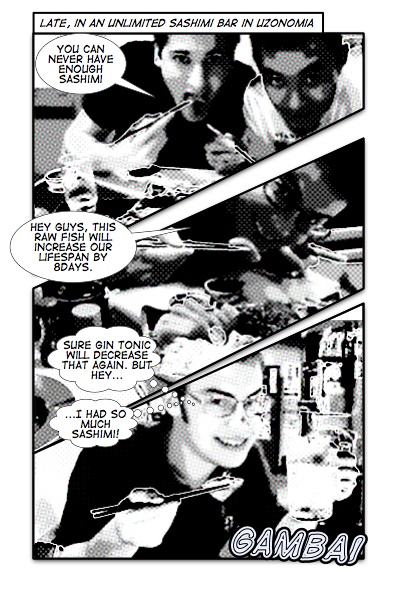
posten on Thursday, August 18, 2005
Tokyo
Konrad and I found our way to Tokyo.
posten on Friday, July 22, 2005
On Deregulation
I finished my work on the Intertemporal Effects of Deregulation. It's based on a paper called Macroeconomic Effects of Regulation and Deregulation in Goods and Labor Market from Blanchard and Giavazzi.
In a Nutshell: Deregulation in the labor market yields
lower wages and possible higher unemployment in the short run. Truly a
negative effect for workers. However, in the long run those higher profits for
firms will attract new firms to enter the market.
Increased competition will drive the number of products, prices and
employment up. This should bring real wages back to the level before
deregulation.
An intertemporal tradeoff indeed.
A Definition of Deregulation from The Economist:
Cutting red tape. The process of removing legal or quasi-legal
restrictions on the amount of competition, the sorts of business
done, or the prices charged within a particular industry. Dur-
ing the last two decades of the 20th century, many governments
committed to the free market pursued policies of liberalisation
based on substantial amounts of deregulation hand-in-hand with
the privatisation of industries owned by the state. The aim was
to decrease the role of government in the economy and to in-
crease competition. Even so, red tape is alive and well. In the
United States, with some 60 federal agencies issuing more than
1,800 rules a year, in 1998 the Code of Federal Regulations was
more than 130,000 pages thick. However, not all regulation is
necessarily bad. According to estimates by the American Office
of Management and Budget, the annual cost of these rules was
$289 billion, but the annual benefits were $298 billion.
posten on Thursday, May 5, 2005
Fair Deal Planning Machine
Trades Unions are still tweaking there machinery.
With combined European power they will soon find a fair deal.
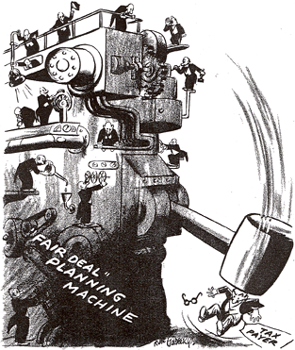
Illustration by Rube Goldberg.
Build your own Rube Goldberg machine with The Incredible Machine.
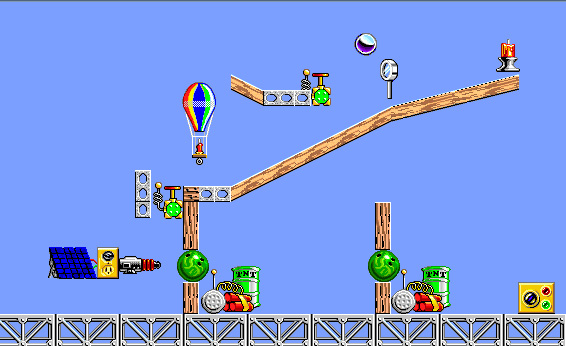
posten on Thursday, April 28, 2005
Some great books
|
Lectures on Computation
by Richard Feynman 
Feynman starts with the nature of information. Proceeds with building a Turing machine and a transistor. And he doesn't stop short of introducing the quantum computer. This book from 1984 reads fresh and new like there weren't any major development in the mean time. |
Artificial Intelligence: A Modern Approach
by Stuart J. Russell, Peter Norvig 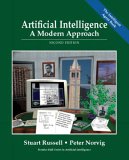
|
|
Macroeconomics
by Nicholas Gr. Mankiw 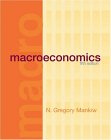
The undergraduate and the... |
Foundations of International Macroeconomics
by Obstfeld, Rogoff 
...graduate text on Macroeconomics. |
|
Computer Graphics with OpenGL
by Donald Hearn, M. P. Baker 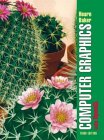
The theory on CG and... |
OpenGL Programming Guide:
The Official Guide to Learning OpenGL, Version 1.4
by Dave Shreiner, Mason Woo, Jackie Neider 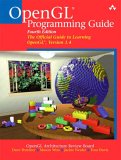
... the reference for OpenGL. |
posten on Wednesday, April 20, 2005
Stundenplan
Now that the summer semester 2005 started, I'm up with a new schedule.
Since I'm almost done with my bachelor, I mostly take classes from the master programm of Wirtschaftsinformatik.
 ...are mixed up with some seminars.
...are mixed up with some seminars.
| Those weekly lectures... |
posten on Sunday, March 6, 2005
Friedman on government
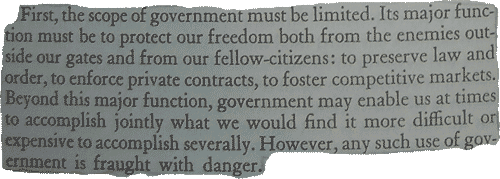
 This quote, from Capitalism and Freedom, is the fundament Friedman builds for a liberal (meaning free) society. The key insight of this book is that capitalism ultimately leads to freedom. Governments should be very careful when regulating the market. They risk freedom.
This quote, from Capitalism and Freedom, is the fundament Friedman builds for a liberal (meaning free) society. The key insight of this book is that capitalism ultimately leads to freedom. Governments should be very careful when regulating the market. They risk freedom.
I read this book while I traveled thru China and it made me think about the political system there. Opening the country to capitalism, should -following Friedman- lead to more freedom for the people in China. This is truly happening. And with luck, someday it may even lead to free democracy.
posten on Saturday, January 22, 2005
Skiing in China
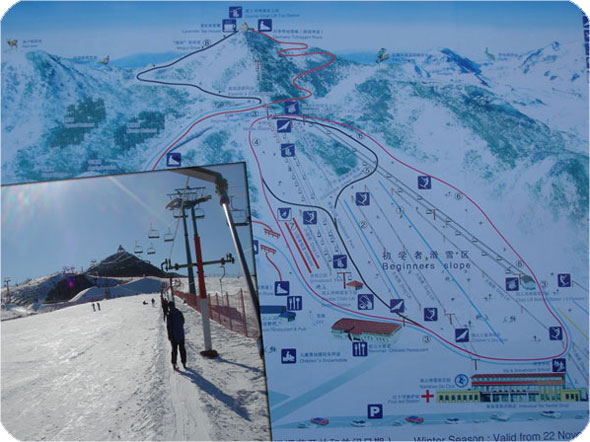
I couldn't help myself. I had to try skiing in China. Not that I couldn't wait a few days before I'm back in Austria. But I had to see what's going on there.
Now I must say that I'm pretty impressed. Surely it's not Austria. But it gives the right feeling about skiing and I guess those Chinese who can afford it, may afford a trip to Austria next time (to get the real thing :-)
posten on Tuesday, January 11, 2005
SungWoo's visit
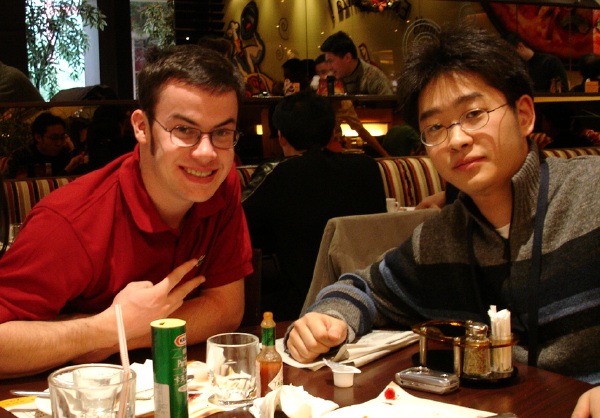
I'm very happy about SungWoo giving me a visit in Shanghai. We spend a few days enjoying the food in China. Although we mostly had Japanese and Korean food we really liked the cracy low prices. Our highlights were a fun night out in Park97 and shopping for cheap movies (we are talking about high quality -Dual Layer- 0.60 Euro DVD's).
That's now the 3
posten on Sunday, January 2, 2005
New Year's Eve in Shanghais' Park 97

Park 97, is beautifully located inside Fuxing park where you can party from dusk till dawn. Park has great DJ's in it's California Club, a Hip Hop or Reggae band in the main area and a Jazz band Upstairs'.
They serve Sushi and GinTonic which was all I needed...
| Address | 2A Gaolan Lu (near Sinan Lu) |
|---|---|
| 中文 | 皋兰路2A号(近思南路) |
posten on Friday, December 31, 2004
100 Jahre Cafe Prückel
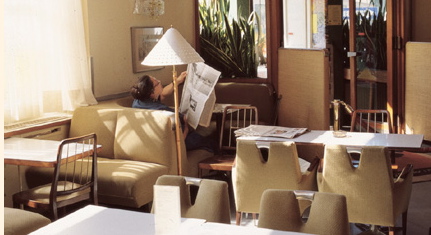
I'm pleased to report that my favorite Wiener Cafe celebrated his 100th anniversary today.
posten on Friday, November 26, 2004
Cafes in Prag
Am Wochenende in Prag habe ich zwei wunderschöne Cafes gefunden.
Cafe Slavia gegenüber dem Tschechischen Nationaltheater an der Narodny trida.
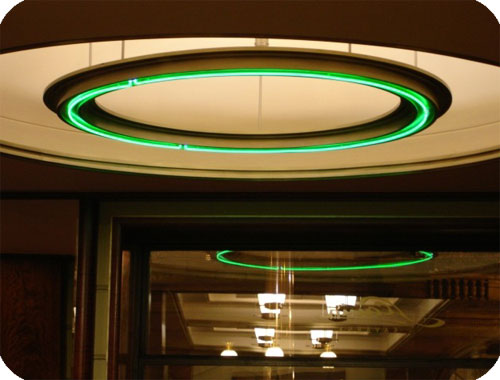
Und das Cafe Imperial in Na Poøíèí 15/1072.
posten on Monday, November 15, 2004
In der Schweiz...
...in der Schweiz, in der Schweiz
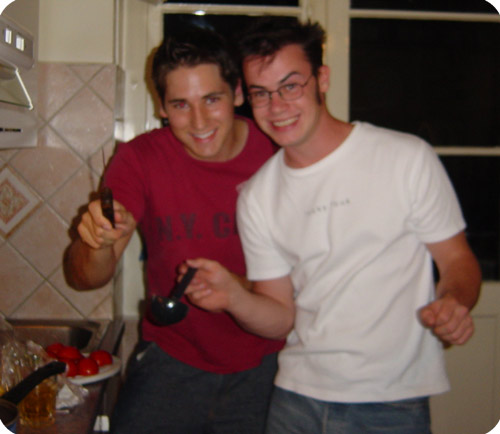
I wanted Shanghai, but I found myself in Lausanne (since Qatar Airways was busy). There Konrad and I went swimming in the Genfersee and had fun with Mr. Incredible.
posten on Wednesday, September 29, 2004
CS148: PacMan

Getting together what I learned in cs148, I wrote a Pac Man game as final project. It was simple, but fun :-)
I found the texture part, in this case the face for pacman, most interesting:
- First you need a 2d matrix, the texture representing a color for each pixel. In my case that's a 128x128 pixel smily.
- Next a matrix transformation (2d->3d) to map the color pixel on the 3d object (as shown in the picture below).
- Lastly another transformation (3D->2D) brings the color from the object back to the view port. Which is again a 2d matrix, namley the monitor.
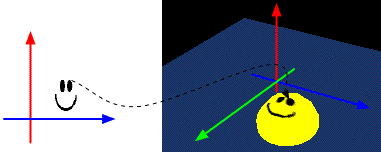
Of course you do the math in reverse order. To get the right pixel of the texture, to the right pixel on the the screen.
Well at least I thought that's pretty cool stuff.
posten on Tuesday, August 17, 2004
CS148: Walking thru OpenGL
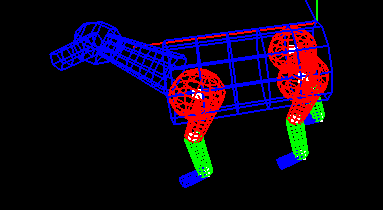 Preparing for my next computer graphics project Animal Farm, I played around with some animations for a walking horse. The animation of the legs is simple based on the sin function of the movement of the horse. With positive sign for the femoral movement and a negative sign for the lower leg movement.
Preparing for my next computer graphics project Animal Farm, I played around with some animations for a walking horse. The animation of the legs is simple based on the sin function of the movement of the horse. With positive sign for the femoral movement and a negative sign for the lower leg movement.
Now I can inherit this functionality for pretty much every animal on the farm.
My goal is to model a short story out of George Orwells Animal Farm. I wanna keep it simple, so I will just put the famous quote "All animals are equal but some animals are more equal than others." and a pig called Napoleon in it. Anyway should be fun.
posten on Monday, July 19, 2004
Mother of the Forrest
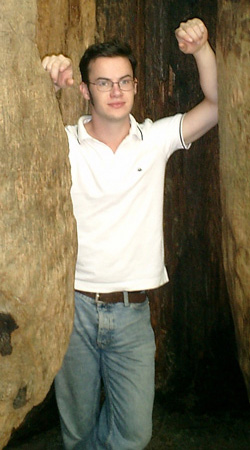 This weekend our SRC group went camping in Big Basin. Even though hundreds of mosquito's destroyed every fun, I was impressed by those huge trees. Like the one I'm standing in (in) the picture. This monster tree is more than a 100m(!) high. I have never seen something like that in Austria.
This weekend our SRC group went camping in Big Basin. Even though hundreds of mosquito's destroyed every fun, I was impressed by those huge trees. Like the one I'm standing in (in) the picture. This monster tree is more than a 100m(!) high. I have never seen something like that in Austria.
Back from hiking, we had just enough time to take a shower before we went on to a party at Lomita. People got dressed really crazy, almost European. It was there, where I first tried, the new famous US party drink, Most. Surely they call it different. But hey I know what it is, it is Austrian! But I undersand, someone can't drink Red Bull all the time :-)
posten on Sunday, July 18, 2004
CS148: Computer Graphics
During my computer graphics class at Stanford, I had the chance to model some trees. Studding the standard books of computer graphics I quickly found my way into OpenGL.

Generated using simple recursive algorithms for transformation in OpenGL
void fractal2D(double steps) {
if(steps > 20) set color brown:
else set color to a random green;
drawRectangle(-steps/20,0,steps/20,steps); // 1:20
glTranslated(0, steps, 0); // move to the top of the rectangle
if(steps > 2) {
glPushMatrix();
glRotatef(-RandInt(90), 0, 0, 1);
fractal2D(steps/2); // start first branch
glPopMatrix();
glRotatef(RandInt(90), 0, 0, 1);
fractal2D(steps/1.2); // start secound branch
}
}posten on Tuesday, July 6, 2004
A day on the campus
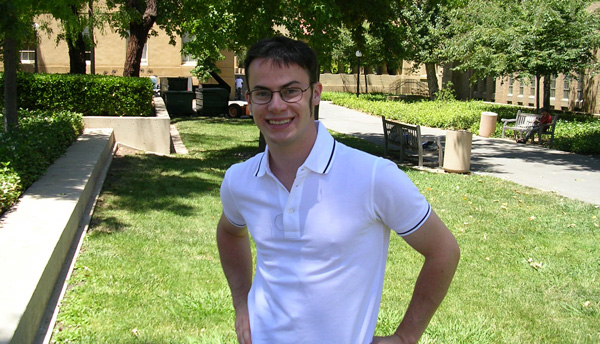
That's me, shot by Hideaki
Today, like most days at Stanford, I start of with an American breakfast. Pancakes and bagels with cream-cheese.
Starting at 9, I had Economics, followed by computer graphics. I'm done by 1. When I get to have some coffee and read a bit in The Economist (luckily available on campus).
Then I may bike around a bit, till 5. The time for dinner.
Nights are filled with homeworks.
posten on Monday, July 5, 2004
Stanford
Back at Stanford, it took me almost a week to settle in. But now I'm happy again. I found some very interesting classes for this summer quarter.
- Economics 52: Economic Analysis III
link
Economics 52, an intermediate course in macroeconomics. The focus will be on developing analytical models, using both mathematics and graphs. The last week of the course will be dedicated to an in-depth analysis of the U.S. economy. - Introduction to Decision Making in Organizations
link [blocked from outside of campus]
Topics include: what makes a good decision, how decisions can be made better, framing and structuring techniques, modeling and analysis tools, biases and probability assessment, and effective presentations. Student teams study and present real decision cases. 3 units, Sum (Robinson, Holtzman) - Introductory Computer Graphics
link
This course is an introduction to 2-dimensional and 3-dimensional computer graphics. Topics covered include scan conversion, 2-dimensional transformations and clipping, 3-dimensional display techniques, representations and transformations, projection algorithms, illumination and color models, hiddensurface elimination, Bezier and B-Spline curves, animation, and ray tracing. There will be a strong emphasis on the mathematical and geometric aspects of graphics.
posten on Saturday, June 26, 2004
Quicky
- During this summer (June 20th till Aug 17th) I'm going back to Stanford to study Physics.
- That's why I give up my apartment in Marokkanergasse. It was good place, but now I have to move on.
- Currently I'm working on an LP on scheduling, which I may inlcude in future version of Caltella. In short, this should find an optimal schedule for one or more person, regarding a certain task, with the goal to maximise spare time.
- Looking at the above task, the field of Operation Research seems very interesting to me. A field where I can combine my interst in math, economics and computer science.
posten on Saturday, May 8, 2004
Caltella
Preferences: To make the Caltella work for you, enter some data. Name, password, typical login stuff. Oh, and a URL to a picture would be nice.
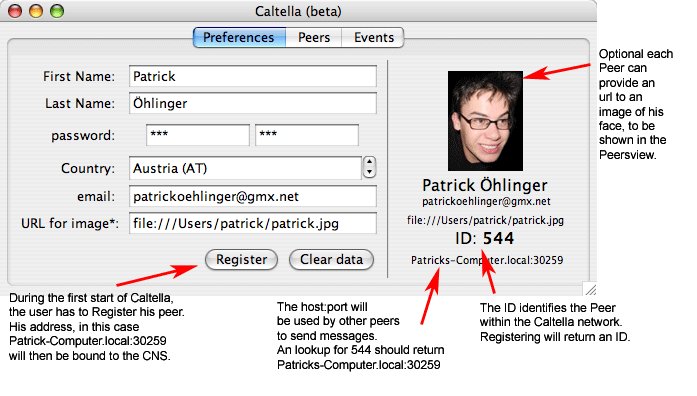
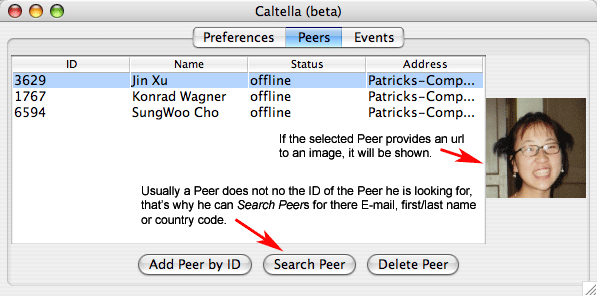
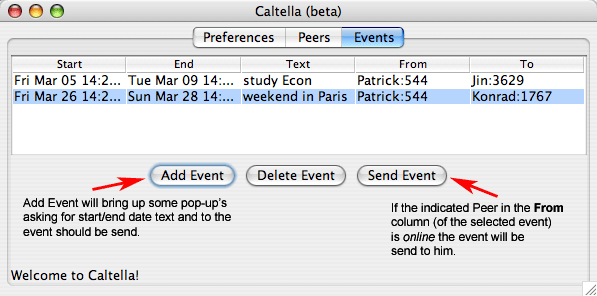
Read more about Caltella in this paper.
posten on Monday, May 3, 2004
Kasnockerl
My friend Konrad is prescatarian. That's someone who eats fish but no meat. Since he comes to visit during estern, I decided to cook something Austrian without meat.
My aunt Lisi provided the following recipe:
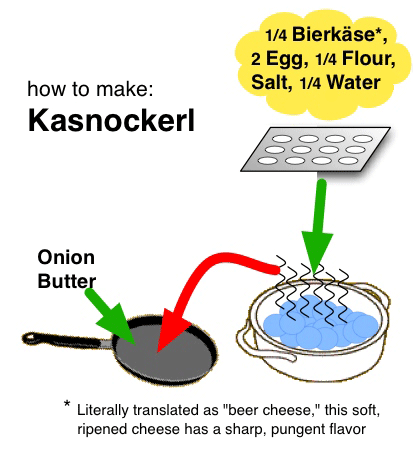
posten on Saturday, April 3, 2004
Topfennockerl
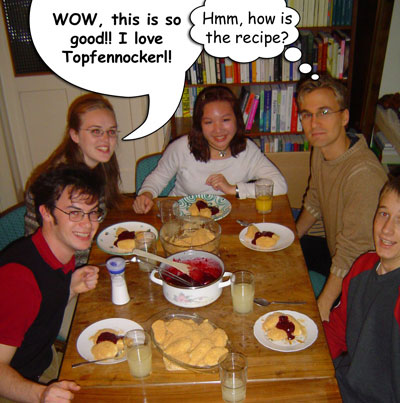 Cooking! Here my recipe for Topfennockerl:
Mix quark, flour, semolina and sugar; make Nockerl (dumplings); boile them.
at: Topfennockerl - de: Quarkklösse - en: quark-dumplings
Cooking! Here my recipe for Topfennockerl:
Mix quark, flour, semolina and sugar; make Nockerl (dumplings); boile them.
at: Topfennockerl - de: Quarkklösse - en: quark-dumplings
posten on Friday, March 5, 2004
Summer in Korea
Intro

Since the end of July 2003 I'm in Seoul Korea to do some research in the Computer and Communication Lab of the Yonsei University. I'm having a pretty good time so far. I get to know a lot of people and everyone is really kind and fun to hang out with.
Also I love Korean food. Like Kimchi, Bulgogi and of course always soup. It's so good and it's much cheaper than in Vienna. I go out eating everyday. Well surely I have no clue how to cook Korean food. Even if I would, my room doesn't have a kitchen (well of course I can always make ramen). But since it's cheap to eat out, I just go for lunch and dinner.
In the lab I spend most of my time programming on a transmission protocol for calendar events (caltella). Which is the fundament for a paper I'm going to write about P2P systems. However, it's a great laboratory with nice people.

That's the Engineering building where I'm working.
Café

And I'm not talking about some kind of Starbucks. I'm talking about a nice place to hang out, with service and ceramic cups. I even found places with newspapers available, not in English but still. That's nice to see.
Above is the picture of Café Tous Les Jours a European-style bakery. My favorite place.
Seoul Subway
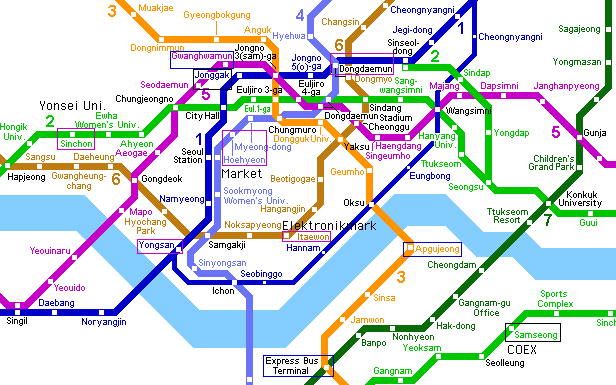
Some important places in Seoul
| station | line | |
| Yonsei Universtiy (that's where I'm) | Sinchon | 2 |
| Kyobo Bookstore | Gangnam | 2 |
| SungWoo's place | Apgujeong | 3 |
| Huge Elektronic market | Itaewon | 6 |
| Market | Yongson | 1 |
| JinWoo's apartment (Exit 6) | Shin Yong San | 4 |
| Market | Dongdaemun | 1,4 |
My room
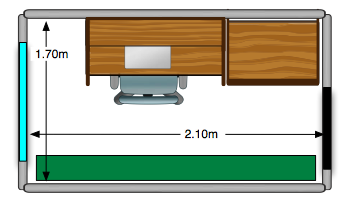
My apartment, or should I say room, is rather small with about 3.5m2. As a matter of fact, when I flip over my (green) matrace and stretch out diagonaly I can touch all four walls of my room at once.
Wow, I have never been in a room that small. However, when I open my window I
can see the lab where I'm working. I could even trow a stone at it, since it's so
close. That kind a makes up for the small size. Plus, with
200.000Won/Month, which is about 150 Euro, it's pretty cheap.
Surely I wouldn't wanna stay forever but, for the time I'm here it's ok.
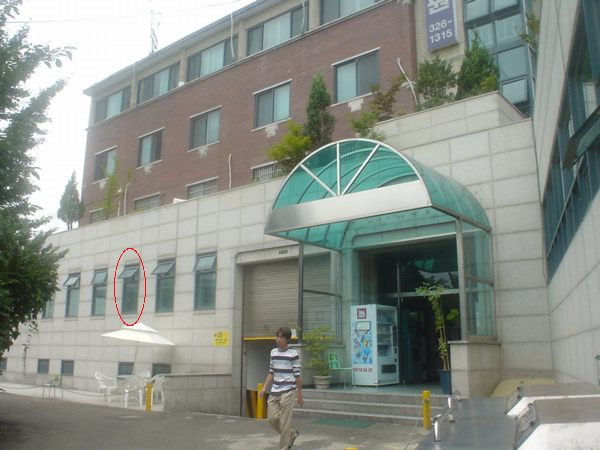
You can see my window within the red circle.
Cheju Island
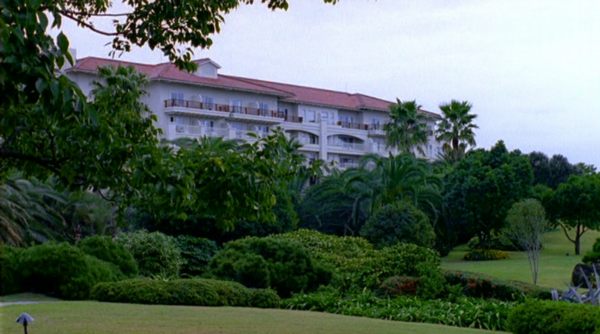
Surely, I can agree with him.
Reunion...
...with my friends from Stanford.
Jun, Janet, Angela, Patrick, Tony, David and BonSung
Karaoke-night in Jonggak
Judi, Patrick and Kara
"At first I was afraid, I was petrified
Kept thinkin I could never live without you by my side
But then I spent so many nights thinkin how you did me wrong
And I grew strong and I learned how to get along"
posten on Thursday, July 10, 2003
A Battery Life Cycle
- from 8am till 10am, during breakfast: checking mails, news, todo's
- from 10:30am till 2pm, in the Cafe Prückel: working on my Web Engineering Homework
- back at home: I'm charching up the battery...
- ...and keep it runnning for quick reference
- it's 8pm and I'm back in the Prückel
posten on Friday, March 14, 2003
Ballroom Night
Exactly one year ago Konrad visited me for a Viennese Ball night. Now he is back again, for the very same ball in the Hofburg. It's nice to have a little tradition. I'm looking forward to see you again next year.
posten on Thursday, March 6, 2003
Skiing with Sung Woo
Sung Woo, my friend from Korea, visited me in Austria! We didn't see each other since our last summer in Stanford.
We had some funny skidays with Lutzy, we walked thru Vienna and of course we spend some time in Viennese Coffeehouses.
To make a long story short, I showed him Austrian and I think (hope) he liked it.
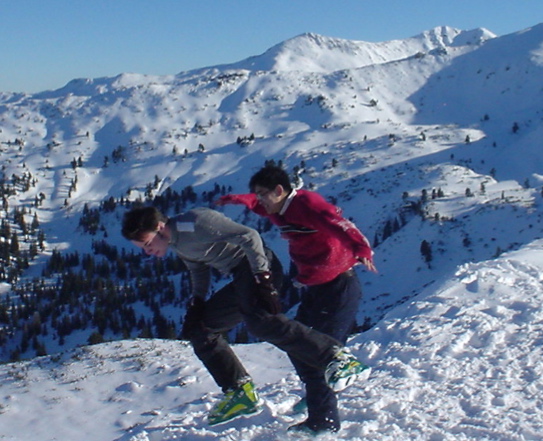
Patrick and SungWoo flying over the mountain
posten on Tuesday, February 25, 2003
Nachhilfe für HTL Schüler
In folgenden Gegenständen:
|
Preise für Nachhilfe:
Einzeluntericht:
derbaum.com/patrick |
posten on Sunday, December 8, 2002
Marokkanergasse
I finally got a new apartment last week! It's in the Marokkanergasse 10 (Tür 7).
posten on Monday, September 9, 2002
Café in Palo Alto
Ok, I miss my Austrian Café's. By now everybody should know that.
People try to help me and point me to there favorite Cafés in town and so, every time I give it another try to find a Café which fulfills my few basic needs.
It's Palo Alto, for gods sack, a small town yes, but one of the richest one in the world. There must be some place serving descent coffee. Yes, I like Starbucks coffee, but the coffee is not served. So what are my basic needs?
- a cup of coffee (expresso, preferable with hot milk in a cup)
- newspaper (not just tabloids)
- service (yes, indeed)
So why is that? Is it because of missing demand, do Americans prefer the freedom to get there coffee them self, waiting in line? Perhaps to chat up other people in line???
This bothers me, so I keep on talking with American's about that. Asking why? I try to explain, why Austrian Cafés have better service, but nobody seems to get my point.
One explanation, starts with the waiter in mind. The idea of serving coffee, or serving in general, is labeled as a poor job. Which nobody likes to do. Unlike in Austria where we call the waiter Herr Ober, which is considered the highest position in the shop. So being the Ober is something people can be proud about. You can tell, just by watching the Ober. His movement has to follow a certain style and arrogance. He knows, it's something not everybody could do. He has a tradition to keep up. Vienna is known for there Café's and it is his responsibility to keep the high standard up, for another century.
So as long as I'm here I have to live with this barbarian baristas, who drink there coffee in paper cups, while walking the street.
→ On 23 Jul 2002, 09:24 am commented wenyu to this story: Very funny. IÁÏm not sure this would make you feel better or worse. But I didn't find any satisfying coffee house in P.A. during the year I stayed at Stanford. Neither did my classmate from China. (we made joint effort in the search sometimes.) And my standards on coffee house are apparently not as high as yours. Good luck.
→ On 28 Jul 2002, 03:36 pm commented veronique to this story: hi patrick, perhaps we could meet at "in einem sonntag im august" again? berlin misses you!!!! konrad and i are going to visit you in vienna as soon as possible to get to know the wunderful atmosphere of vienna«s coffeehouses.... 20 hugs, veronique
posten on Monday, July 22, 2002
Wirtschaftsinformatik
After years of thinking about all kinds of possible Majors, I finally found back to the roots of my interests.
Since I attended the HTL Schellinggasse I was equally interested in Computer Science as well as Economics and Business. Now it seems so obvious to study Wirtschaftsinformatik, which is basically a combined major of both.
Looking up a dictionary I found two translations for Wirtschaftsinformatik.
- computer science in economics
- business informatics
Interesting fact about the Wirtschaftsinformatik is that it's thought at the Vienna University of Technology and the Vienna University.
Wirtschaftsinformatik is separated in a Bachelor of Economic Science (6 Semester) and a Master of Business Administration (3 Semester).
posten on Monday, July 8, 2002
NY Times about Starbucks in Vienna
A todays headline in the New York Times says "An American Coffeehouse (or 4) in Vienna". In this article, of course about Starbucks, I found some nice parts and since it is interesting to know how an US Newspaper thinks about this "invasion" let's read on. »Many Viennese sniff that their culture has been infected, that Viennese use their 1,900 or so coffee shops to linger and meet, smoke and drink, savor the wonders of pastries with cream and marzipan, ponder the world, write books and read free newspapers. They drink from china cups and order from a waiter, usually in a stained black dinner jacket. Some Austrians say a caramel macchiato is worse than a Coca-Cola, likely to do more damage to European values (and waistlines) than a Big Mac. There was also skepticism about the Starbucks brand, associated with globalization and mass American culture. "It was the hardest part," said Franz Holzschuh, who leads the Starbucks joint venture in Austria. "People would say, `You're the McDonald's of coffee, with paper cups.' I'd explain a hundred times that we're not McDonald's, that we're high quality and not cheap, and only use paper cups to go."« ...just what I sad. I like this article even with the funny end: But without doubt, there is an antiglobalization activist sitting in a Starbucks somewhere, nursing rage while sipping a secret vice, the caramel macchiato.
posten on Saturday, June 1, 2002
Starbucks invades Vienna
The Viennese Caféhaus society is proud of his history in coffee culture. The first Starbuck opend 30 years ago, so what? Just Americans can count that as historical. The Vienneses Caféhauses are 100 years and older. It scares me to see Viennas turning into an outpost of America. So I call you, to wake-up and BOYCOTT STARBUCKS! They even have an Austrian webpage to push there marketing and commercialisation onward. Ever thought why they started in Austria before Germany? Well I know why. They want to strice down the capital of Caféhauses in Europe first. So they can esasily invade the rest. If we Austrians accept this Americanization in one of our most glourius reagions, which could led to a end of Caféhauses like I used to sit in five hours a day, then I see notting left to save in European culture. I can understand when people in America don't find a better place to drink there coffee. But in Vienna, there is no excuse! I personaly recommend the Café Prückel. Where you get a Melange und ein Stück Kuchen, a newspapers like the Neue Züricher Zeitung, the Frankfurter Allgemeine Zeitung or Der Standard and piano music all served to your table. → On 12 Apr 2002, 03:35 pm commented Patrick to this story: I just realised this story sounds really contra America. Don't get me wrong it's just about Caféhauses... → On 12 Apr 2002, 04:21 pm commented Nico to this story: There're to problems. First the smokers: Many Kaffees have so many of them, so the air is bad. The other: They aren't "cool". You know I like them, but many think they're just for tourists or guys with much money in their pocket. They are old and they look like. They don't seem to be on-time and that's what kids today demand. → On 13 Apr 2002, 06:26 pm commented Patrick to this story: As long as Starbucks doesn't have free Newspapers and service right to my table, I will not count them as Cafehaus!
posten on Friday, April 12, 2002
Books That Shaped a Century of Science
A few examples from the 100 or So shaping books found on American Scientist.
- H. G. Wells, Tono Bungay (1908)
- Sigmund Freud, Abriß der Psychoanalyse. Einführende Darstellungen* (1920)
- G. H. Hardy, A Mathematicianâs Apology (1940)
- Richard Goldschmidt, The Material Basis of Evolution (1940)
- Charles Darwin, Autobiography (1950)
- Konrad Lorenz, Er redete mit dem Vieh, den Vögeln und den Fischen* (1952)
- Donald Knuth, The Art of Computer Programming (1968)
- James Watson, The Double Helix (1968)
- Freeman Dyson, Disturbing the Universe (1979)
- Richard Feynman, Surely You're Joking, Mr. Feynman! (1985)
- Richard Feynman, QED (1985)
posten on Monday, March 18, 2002
Cafe Prückel got WiFi
Yes, now we have wirless LAN in the Cafe Prückel like in the Cafe Diglas. Again provided by metronet.at. Vienna is getting a better place to be, if you have wirless access point everywhere.
posten on Friday, January 18, 2002
Biking in Stanford
A roadbike offers the fastest tranportation on campus. Everywhere to anywhere in less than 8min and about 15min to Palo Alto.

posten on Sunday, August 5, 2001













